Remembering the chemical bombardment of Goptapa, Askar regions
Kurdistan 12:17 PM - 2021-05-03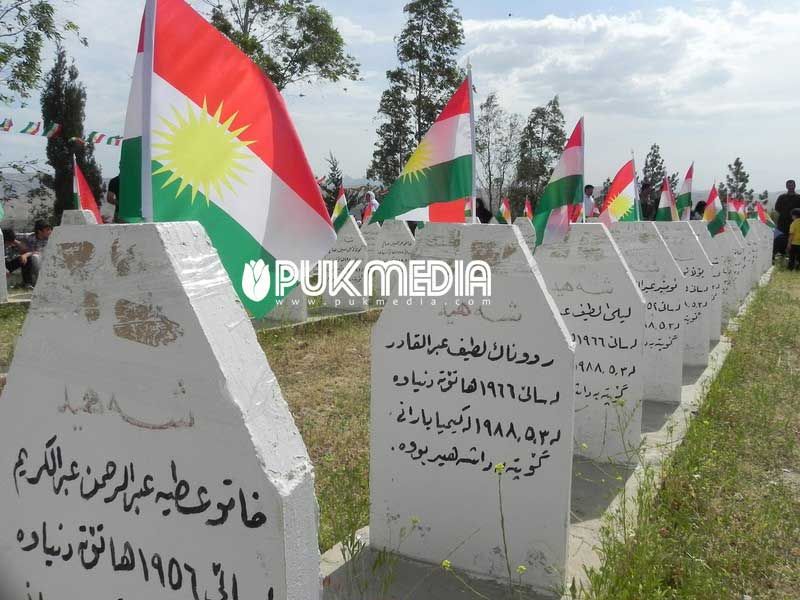
.
Today, May 3, marks the 33rd anniversary of the bombing of Goptapa and Askar districts of Sulaymaniyah Governorate with internationally banned chemical weapons by the fallen Iraqi Baath regime.
On May 3rd, 1988, the fallen Baath regime's planes bombed the villages of Goptapa and Askar with chemical weapons as part of the fourth campaign of the notorious Anfal operations, which resulted in the death and injury of hundreds of innocent civilians.
The death toll in Goptapa from chemical weapons was only exceeded by that of Halabja, which had been gassed seven weeks earlier and killed over 5000 from women, children, and elderly people.
The beginning of this brutal crime was the bombing of the Goptapa area with chemical weapons, on May 3, 1988, when the warplanes of the fallen regime bombed them with napalm bombs and chemical gases, causing the death and injury of dozens of innocent citizens, and at the same time, the warplanes bombed the Askar area with eight Napalm bombs. Dozens of villagers were killed and the residents of the area were forced to evacuate due to chemical weapons and sought refuge in caves of the surrounding mountains.
On May 4, 1988, the Saddam army began a ground attack on the area, destroyed the Goptapa area, and buried the remains of the martyrs in mass graves. The regime then raised the level of the Little Zab river to prevent the people from escaping.
The number of missing and disappeared persons after this brutal crime was 1,680 after which the Saddam army destroyed dozens of other villages in the region.
The Anfal campaign carried out by the dictatorial regime of Saddam Hussein against the Kurdish civilian population began on February 22, 1988, and continued until September 6 of the same year, and is considered one of the most dangerous pages of government mass killing in the history of Baathist rule in Iraq. The army and regular forces directly, including (the First Corps, which was based in Kirkuk, the Fifth Corps, which was based in Erbil), the Air Force, the Special Forces, the Republican Guard, the Commando Forces, the security and intelligence services, military intelligence, the chemical and biological weapons departments, in addition to all service departments that have been put in the service of carrying out these operations.
The stages of the Anfal campaigns
* The first Anfal: Sulaymaniyah, besieging Sargallu on February 22 until March 19, 1988.
* The second Anfal: Sulaymaniyah's Qardagh, Bazian and Darbandikhan regions from March 22nd until April 1, 1988.
* The third Anfal: Garmian region including Kalar, Bawnur, Kufri, Douz, Sengaw, Qadir Karam, on April 20 of the same year.
* The fourth Anfal: The boundaries of Small Zab plain, meaning the area of Koya, Taq Taq, Aghjeler, and Nawshwan, on May 3 to May 8, 1988.
* The fifth, sixth and seventh Anfal: the vicinity of Shaqlawa and Rawanduz on May 15 until August 26.
*The eighth Anfal: The last phase took place in Badinan, Amedi, Akre, Zakho, Sheikhan, Dohuk, from August 25 until September 6 of the same year.
Anfal was a mass killing campaign, genocide, and organized extermination according to all standards. This means that the Anfal was the first step to annihilate the Kurdish community and the destruction of villages in Kurdistan, as the strategy of the Anfal campaigns was to destroy all the defensive capabilities of the Kurdish community.
The Anfal crimes that caused the death of over 182,000 innocent Kurdish people began with military operations and were divided into eight stages. The first phase of the campaigns began in the Sulaymaniyah region on February 22, 1988, and the final phase of the Anfal campaigns, known as the Anfal conclusion, was in the Badinan region on September 6, 1988. All kinds of internationally prohibited weapons were used during the Anfal campaign, especially chemical weapons such as mustard, cyanide, nerve gas, and phosphorous.
According to international norms and standards for crimes, the Anfal campaign falls within the framework of genocide crimes by every means, and this fact was clearly indicated in the report of international organizations monitoring human rights. The Anfal file entered the Iraqi High Criminal Court and on August 21 2006, a pleading was given on the Anfal in Baghdad court, where the court issued its decisive decision on the Anfal file, and accordingly, the Anfal crimes were defined as genocide.
The Anfal file included the names of hundreds of defendants who were the main perpetrators of these crimes, but only these accused were questioned and tried (Saddam Hussein, Former President of the Republic of Iraq, Ali Hassan al-Majid, Secretary of the North Office of the Baath Party, Sultan Hashem, the Army Commander, Saber Abdul Aziz al-Douri, Head of the Military Intelligence Organization, Hussein. Rashid al-Tikriti, deputy in charge of implementing the Anfal campaigns, Taher Tawfiq al-Ani, governor of Nineveh, Farhan Mutlaq al-Jubouri, military intelligence official in northern Iraq).
PUKmedia
More news
-
Media & Awareness Bureau Receives Russian CG
08:28 PM - 2024-04-18 -
PUK President: We Support Yazidis in Protecting their Rights
04:51 PM - 2024-04-17 -
DPM Talabani: Elections Must Be Held Promptly Without Further Delay
05:53 PM - 2024-04-16 -
PUK & UNAMI Emphasise Holding Timely Elections
05:28 PM - 2024-04-16
see more
Leadership Council Publishes Official Statement on Thursday’s Meeting
07:48 PM - 2024-04-18
IHEC Determines Kurdistan Parliamentary Election Campaign Date
01:37 PM - 2024-04-18
PUK President: Elections Would Develop Our Experience
05:06 PM - 2024-04-17
The 8th Sulaymaniyah Forum Takes Place Today
10:33 AM - 2024-04-17
Most read
-
IHEC Determines Kurdistan Parliamentary Election Campaign Date
Kurdistan 01:37 PM - 2024-04-18 -
Leadership Council Publishes Official Statement on Thursday’s Meeting
P.U.K 07:48 PM - 2024-04-18 -
PUK President: PUK is Ready for Elections
P.U.K 09:29 PM - 2024-04-18 -
Media & Awareness Bureau Receives Russian CG
P.U.K 08:28 PM - 2024-04-18

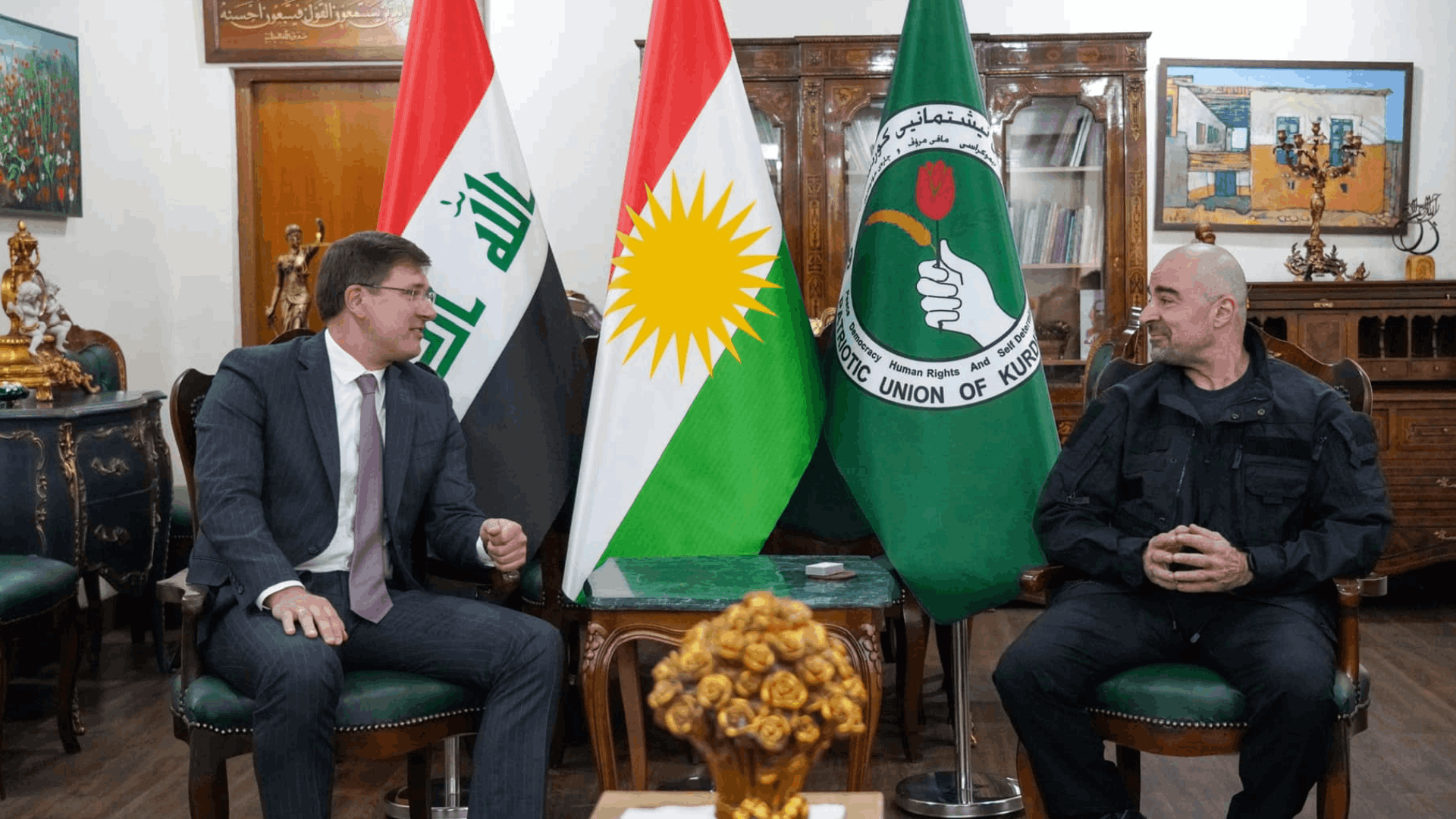
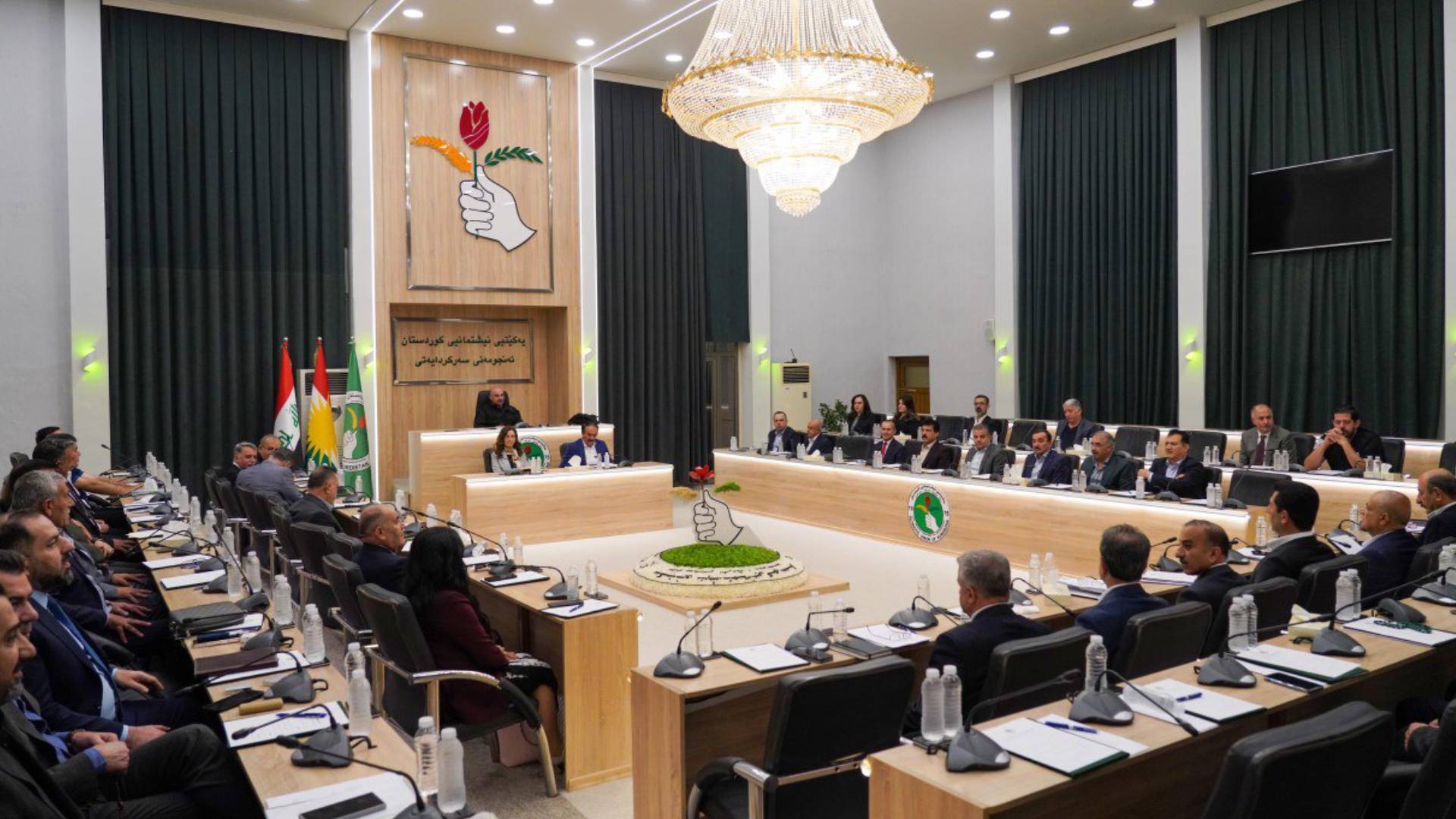

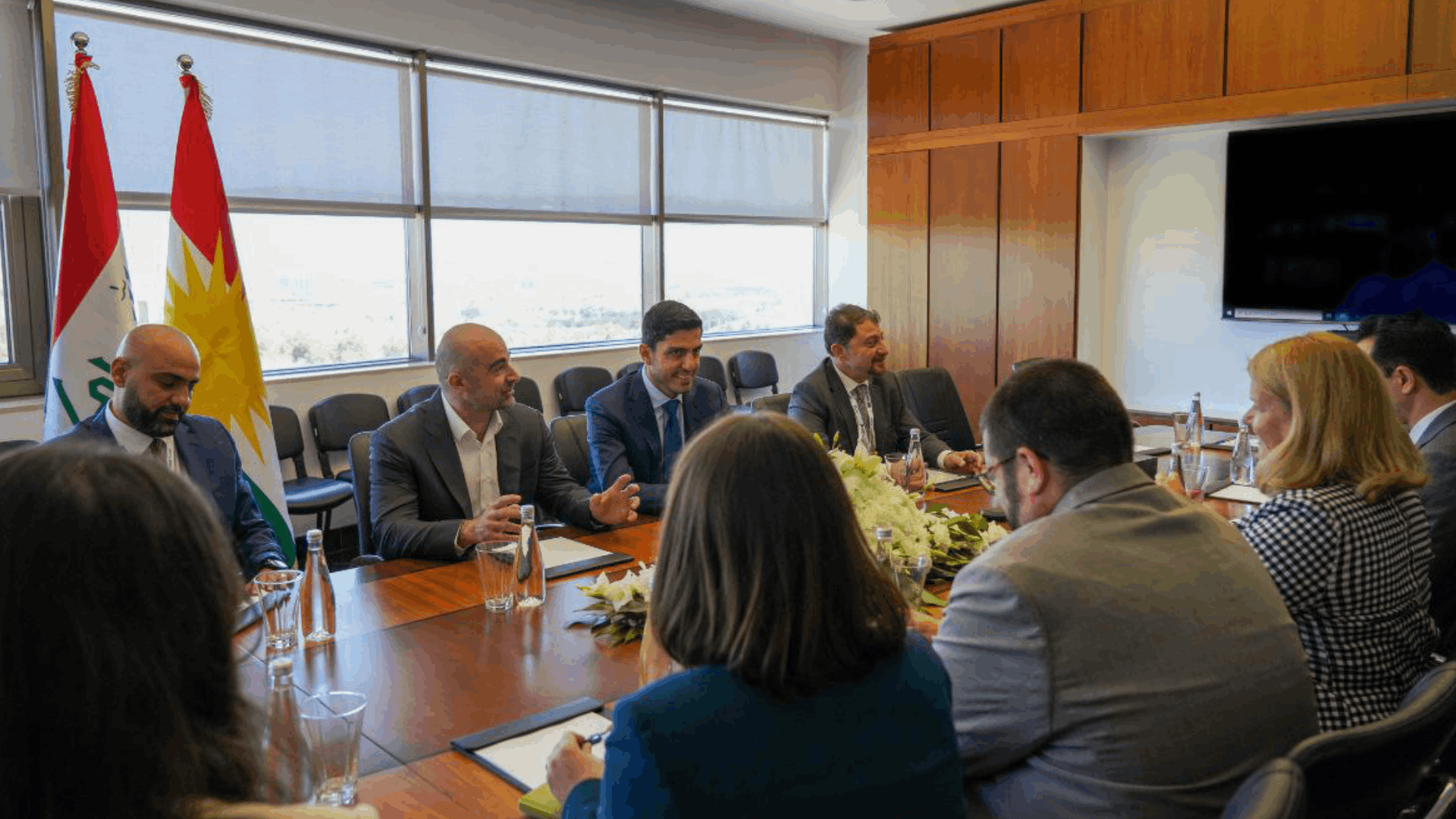
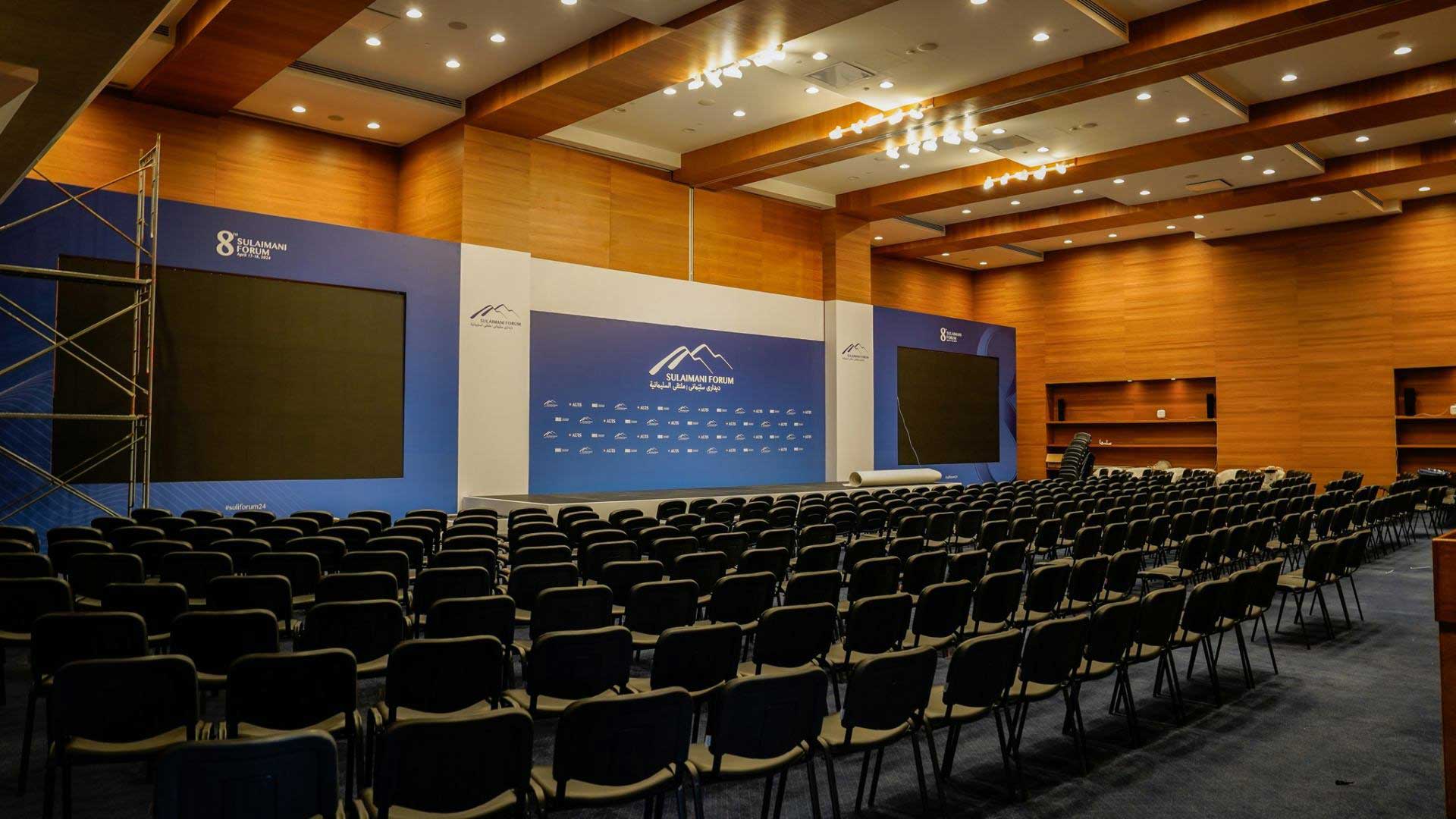
 Application
Application


